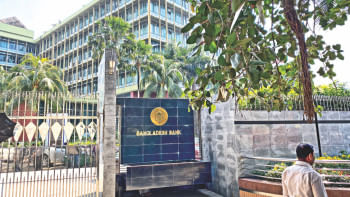A history of Bangladesh portrayed in poor light in Bollywood films

Recently, two popular Bangladeshi actresses, Bidya Sinha Mim and Mehazabien Chowdhury, rejected a film offer from Indian director Vishal Bhardwaj (of "Maqbool", "Omkara", and "Haider" fame). "Khufiya", the film in question, apparently misrepresents Bangladesh and its politics, both Mim and Mehazabien were quoted as saying.
In a conversation with The Daily Star, Mim revealed that she rejected the movie after reading the script.
"It's difficult to say no to a renowned director. I have admired him for a long time. It was also my first offer for a Bollywood film. But I had to unfortunately turn it down," said the actress.
She turned down the offer politely, as she felt that the story lacked knowledge of political history, and other background information on Bangladesh.
Mehazabien, meanwhile, rejected the film in July. "I had a conversation at length with the director, and I felt like the script belittled my country, and I could not accept that," she told The Daily Star.
But is this the first time that Bangladesh is being portrayed in poor light in an Indian film? Let's look back.

Bollywood film "Gunday" (2014), starring Ranveer Singh, Arjun Kapoor, and Priyanka Chopra, was embroiled in controversy upon its release, as it mentioned in its opening scene that Bangladesh was born as Pakistan surrendered on December 16 at the end of the India-Pakistan War.
People in Bangladesh were infuriated by the movie, as it undermined the armed resistance of Bangladeshi freedom fighters. The movie also completely ignored the loss of around three million lives in the war.
Bangladesh's Foreign Ministry intervened and asked Indian authorities to halt the screening of "Gunday" with immediate effect.
T-Series, one of the producers of the movie, removed the scene immediately from their online channels, and issued a public apology to Bangladeshi viewers.
Their statement read, "Several of our Bangladeshi brethren have reached out to us with their concerns on the way the story has been portrayed and we would like to apologize if any disrespect or hurt has been caused to them. However, this was and is meant to be a fictional work and does not in any way project or disrespect any particular segment of society or persons or a nation."
Next up is Shah Rukh Khan starrer "Jab Harry Met Sejal" which portrayed Bangladeshi immigrants in a disparaging manner.
One of the characters in the movie, Gas (played by Chandan Roy Sanyal), was of Bangladeshi origin. The character is a fake jewellery racket kingpin, who defends himself before Harry (played by Shah Rukh Khan), as he is an illegal immigrant who moved to Portugal in search of alternative sources of income because his farmlands were ruined by incessant floods.
Many Bangladeshi immigrants feared that the movie will create a negative impression of them.
"I am not in favour of stereotypes. There are movies in which Bengalis are identified with certain clichés. The problem is that such clichés lead people to generalise about a race or nation," said Bangladeshi actress Sohana Saba to Times of India at the time. "It is a sensitive subject and requires careful contextualising."
Bangladeshi filmmaker Shihab Shaheen emphasised on the impact of cultural hegemony in Bollywood movies.
"Bollywood gets the upper hand to undermine us as we let them do so. Through the demeaning representation of Bangladeshis, they try to cater to the Indian audience by selling anti-Bangladesh sentiment," he said.
Misrepresentation of Bangladesh can also be found in the superhit Telegu film, "Goodachari", which was released in 2018. The movie suggested that Bangladesh, as a country, lacks communal harmony and cultivates terrorism.
It showed Chattogram as a safe haven for terrorists, and that innocent children were trained to believe that India is an enemy country. The movie also showed a terrorist group handing out arms to children.

Considering this disappointing trend, directors like Mrityunjay Devrat, who beautifully depicted the trauma of the 1971 Liberation War in his 2014 movie "Children of War", deserve appreciation.
Devrat interviewed various journalists, war veterans, and refugees for the movie. "Children of War" was aired on Bangladesh Television as well for its true-to-life depiction.
Perhaps Bangladesh's less than desirable representation in Indian films can be explained by Indian Home Minister Amit Shah's remark that "poor people from Bangladesh come to India because they don't have enough to eat in their own country" and Bangladeshi Foreign Minister AK Abdul Momen's response that Shah's knowledge of Bangladesh was "limited" and his remarks were "unacceptable especially when relations between Bangladesh and India are so deep".


 For all latest news, follow The Daily Star's Google News channel.
For all latest news, follow The Daily Star's Google News channel. 



Comments